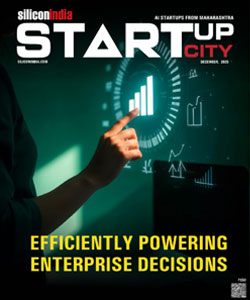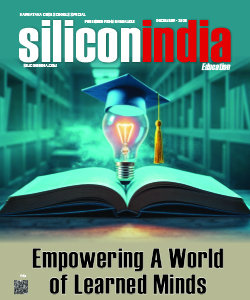Vehicle Loan Segment in India - The Current Scenario & Future Prospects

Holding an MBA in Strategy, Leadership & Finance from the Indian School of Business, Namit incepted Rupyy in 2016, prior to which he has successfully handled key roles at McKinsey & Company, Wipro Infotech and Bharat Heavy Electricals. Additionally, he had also founded another startup named MentMo, which was a social marketplace for mentoring services. In a recent conversation with Siliconindia, Namit Jain, Co-Founder & CEO, Rupyy shared his insights on the current vehicle loan space in India, recent tech advancements and many other aspects. Below are the excerpts from the exclusive interview
Share your thoughts on the vehicle loan segment in India post-Covid.
Currently, although we are witnessing a significant growth in sales of cars after covid, the 2-wheeler segment is yet to pick-up pace, as the domestic 2-wheeler sales in FY23 stood at ~15 million as compared to ~17 million in FY20. Additionally, the recent numbers show that the ratio of used cars to new cars which was 1.2 in FY19 it is expected to grow to 1.9 by FY27. The number of financiers in this space, especially for used cars has seen an upward trend over the years. The covid-19 pandemic has accelerated digital adoption as the overall pace for digital financing of automobiles has increased. Overall, the vehicle finance industry has experienced an exponential CAGR of 32 percent for the last three years, with the total Vehicle Loan AUM for all commercial banks standing at  5 lakh crores as of March-2023.
5 lakh crores as of March-2023.
What are some of the key factors that are driving the vehicle loan segment lately?
Rising urbanization, better infrastructure, and higher living standards are some of the causes contributing to the rise in consumer demand for automobiles. Also, the used automobile market is expanding quickly, and many consumers are choosing to finance their used car purchases. Increasing disposable earnings are enabling more people to buy cars and take-out loans. Lenders too are providing a selection of appealing loan packages with affordable interest rates and repayment terms, making it simpler for customers to finance their car purchases. The Government of India has encouraged customers to purchase an electric vehicle by offering tax benefits and several incentives. Lastly, digitalization of the vehicle loan process is making it easier and faster for people to apply for and obtain loans.
Tell us briefly about a few advancements that are enabling companies to ensure quality and transparency in the vehicle loan space.
Vehicle finance was traditionally among the least digitized categories. Earlier, it used to take 15 days for a used car loan transaction to get completed, as the process used to be long, inconvenient and full of paperwork. But this has changed in last five years owing to the automobile companies’ partnership with India’s largest banks and NBFCs. The industry has started to disrupt consumer experience in vehicle loans by using digital lending capabilities like Account Aggregators, UPI, e-sign, cKYC and many more.
How do you expect the vehicle loan segment in India to shape-up in the near future?
From an industry perspective, the current demand for used car loans in India is experiencing remarkable growth, surpassing the demand for new car loans. The Indian used car financing market is valued at ~ 60,000 crore and is projected to grow at 24 percent CAGR from 2022-27. This can be majorly attributed to shifting consumer preferences, affordability, and changing market dynamics. The growth and significance of auto financing in India hint at the rising adoption of technology along with the adoption of AI. The fusion of AI and auto finance is setting the stage for a transformative journey, introducing innovative models and strategies that will reshape the industry in a very impactful way. AI-powered systems will analyze loan applications swiftly and accurately, reducing approval times and paperwork. This speedier process will appeal to customers, making auto finance more efficient and attractive.
60,000 crore and is projected to grow at 24 percent CAGR from 2022-27. This can be majorly attributed to shifting consumer preferences, affordability, and changing market dynamics. The growth and significance of auto financing in India hint at the rising adoption of technology along with the adoption of AI. The fusion of AI and auto finance is setting the stage for a transformative journey, introducing innovative models and strategies that will reshape the industry in a very impactful way. AI-powered systems will analyze loan applications swiftly and accurately, reducing approval times and paperwork. This speedier process will appeal to customers, making auto finance more efficient and attractive.
One of the most promising prospects is the integration of dynamic pricing models within auto finance. AI algorithms, fueled by real-time data analysis, can dynamically adjust interest rates and financing terms based on a multitude of variables that allow the consumers to get the best and most affordable financing rates. Going forward, we can also expect better customer engagement too with virtual assistants powered by Generative AI, who will guide customers through their financial journeys including personalized advice, tips on financial management, and insights into vehicle choices.
Read More News :





